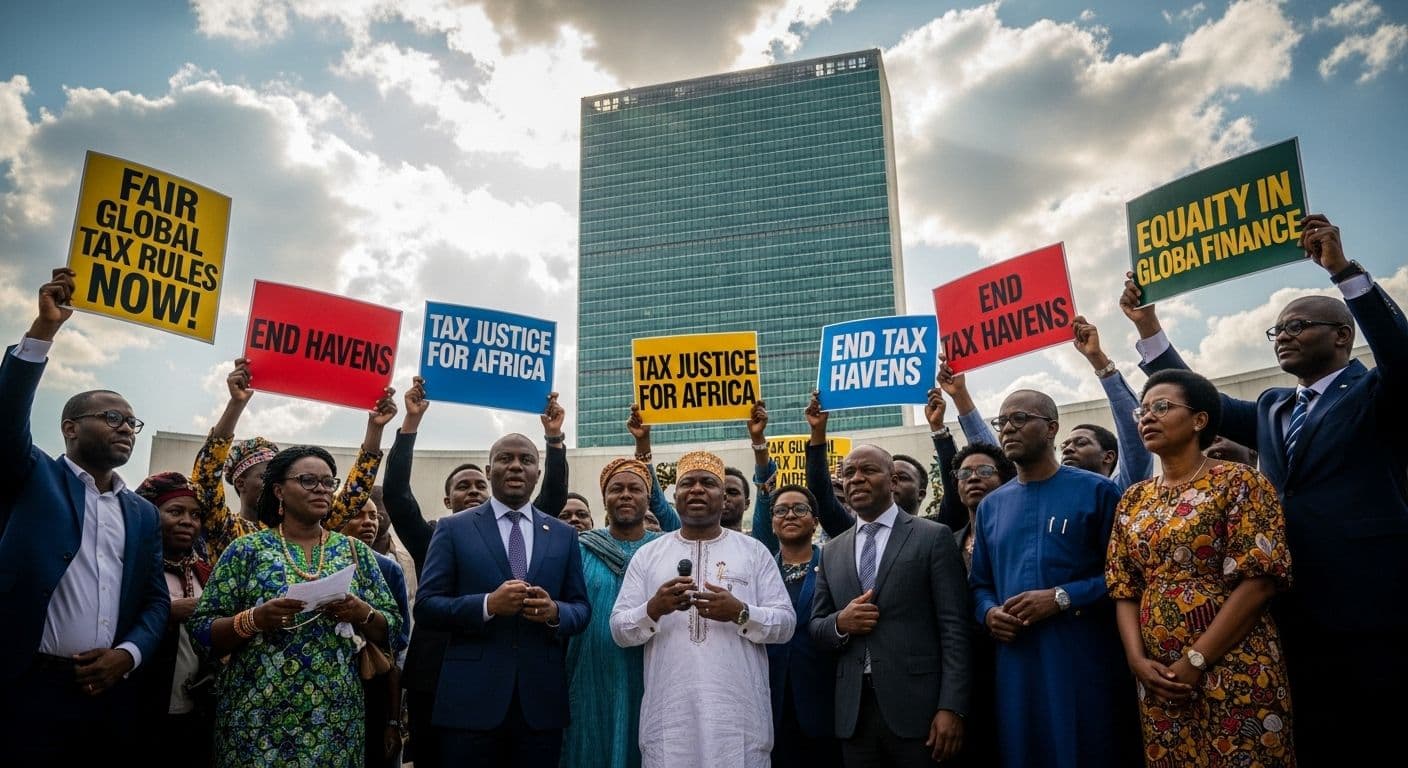The Lead Story
Unions, Africa Turn Up the Volume at UN Tax Talks
The tug-of-war over who writes the world’s tax playbook just got louder. As United Nations delegates hash out the framework for a first-ever global tax convention, labor groups and several African governments are demanding rules that close loopholes, curb corporate abuse, and fund climate action. Their message: the status quo isn’t cutting it.
“Workers want a seat at the table and a fair slice of the pie,” the International Trade Union Confederation told ITUC, urging negotiators to craft progressive, transparent systems and widen civil-society participation.
Across the aisle, African finance ministers blasted a recent G7 side deal granting U.S. multinationals relief from the OECD’s 15% minimum tax, calling it proof that “global rules are broken,” according to Bloomberg Law. They argue the carve-out undercuts developing countries already losing an estimated $245 billion annually to profit shifting.
Environmental advocates are piling on. A proposal to make polluters and billionaires bankroll climate repairs “could finally align tax policy with planetary reality,” Greenpeace International reported, pointing to fossil-fuel giants’ light tax bills despite outsized emissions.
Why it matters: The reaction was swift because a UN-led pact would rival — or even replace — OECD dominance in international tax. For multinationals, that could mean new disclosure rules, higher effective rates, and climate-linked levies. For treasury departments in emerging markets, it could unlock billions in desperately needed revenue.
Around the Tax World
• Luxembourg backs substance-over-form. In a landmark ruling on interest-free loans, the Grand Ducal court said economic reality trumps paperwork when deciding if financing from indirect shareholders is debt or equity (International Tax Review).
• China turns the compliance screws. Enhanced data analytics and the Common Reporting Standard are powering Beijing’s new hunt for offshore personal-income gains ( China Daily ).
• Zimbabwe signs on as No. 151. The nation joined the OECD’s Multilateral Convention on Mutual Administrative Assistance in Tax Matters, boosting cross-border information sharing (ZAWYA).
By the Numbers
Prime Number: 151 – That’s how many jurisdictions now cooperate under the OECD information-exchange convention after Zimbabwe’s signature, widening the net on tax evasion.
Looking Ahead
All eyes shift to New York in October when UN delegates reconvene. Expect heated debates over minimum-tax carve-outs and a possible draft article on climate-damage levies.
Prepared by MyTax - mytax.com.ng
